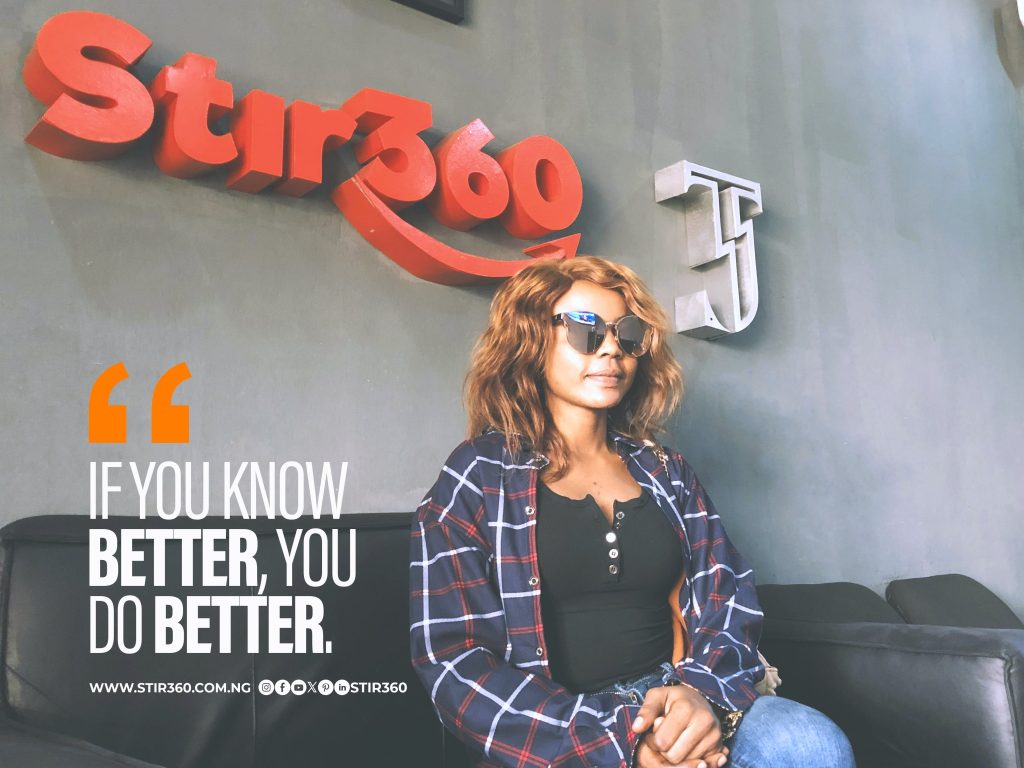If You Know Better, You Do Better.

There is a timeless adage that says, “Knowledge is power.” This simple yet profound statement encapsulates the incredible potential that knowledge holds in transforming lives. It transcends borders, social class, age, and gender. The power of knowing—deeply understanding, applying, and refining knowledge—can uplift individuals and communities alike. When people know better, they do better, and the results are often astounding.
The Universal Reach of Knowledge
One of the most powerful aspects of knowledge is that it isn’t limited by geography. In today’s connected world, a child in a rural village in Nigeria can access the same information as a student in New York City. The internet has democratized access to education, making it possible for anyone, anywhere, to learn new skills, explore new ideas, and make significant contributions to their society.
In Nigeria, this truth is evident in the rise of tech innovators like Iyinoluwa Aboyeji, co-founder of Andela and Flutterwave. Despite growing up in a country with significant infrastructural challenges, Aboyeji used the power of knowledge and education to build tech companies that now operate globally, offering solutions to everyday problems. His story is a testament to how knowledge, when applied correctly, can transform not only individual lives but entire industries.
Similarly, young Nigerian women are excelling in STEM fields, overcoming local challenges to participate in a global economy. One example is 13-year-old Faith Odunsi, who in 2021 won the Global Open Mathematics competition, beating students from the U.S., U.K., China, and others. Her achievement highlights how access to knowledge and dedication can lead to remarkable results, regardless of location.
Age is Just a Number
When it comes to knowledge, age is irrelevant. From the young to the elderly, continuous learning opens doors to limitless possibilities. Consider the case of Taofeek Okoya, the Nigerian entrepreneur who founded his own toy company, Q-MADI, at just 13 years old. With no formal business training but a passion for innovation, he used his knowledge of his environment to create a thriving business that fills a gap in the Nigerian market.
On the other end of the spectrum, take the example of the legendary Nigerian author, Chinua Achebe, who continued to inspire through his writings well into his later years. His work, deeply rooted in the knowledge of African traditions and colonial history, continues to shape global perceptions of African literature. Age didn’t limit his ability to produce work that impacts generations.
The key takeaway here is that learning doesn’t have an expiration date. It is through the relentless pursuit of knowledge that people can evolve, regardless of their stage in life. When individuals invest in learning, they open themselves up to new opportunities that can shape their future in remarkable ways.
Breaking Down Gender Barriers
Gender has often been a limiting factor in many societies, dictating the roles and opportunities available to individuals. However, knowledge is proving to be a powerful equalizer. Women and men alike, when armed with the right knowledge, are breaking down gender barriers and achieving exceptional success in fields traditionally dominated by one gender.
Nigerian women, like Ngozi Okonjo-Iweala, who became the first female Director-General of the World Trade Organization (WTO), are changing the narrative on the global stage. With her wealth of knowledge in economics and international relations, Okonjo-Iweala is making strides in global trade policies, proving that gender is not a limitation when one possesses the right knowledge.
Similarly, Chimamanda Ngozi Adichie, an award-winning author, uses her knowledge and storytelling prowess to challenge gender norms and advocate for women’s rights. Her writings have become a source of empowerment for many, showing that with knowledge, women can shape the discourse and break free from societal constraints.
The Power of Application
Knowing better isn’t just about acquiring information—it’s about applying that knowledge in ways that produce tangible results. A person armed with knowledge but unable or unwilling to act on it remains stagnant. However, when knowledge is applied, it can lead to breakthroughs that have far-reaching effects.
Consider the story of Aliko Dangote, Africa’s richest man, who leveraged his knowledge of economics and business to build one of the largest industrial conglomerates in Africa. Dangote’s application of his knowledge of the Nigerian and African markets enabled him to transform his initial trading business into a global manufacturing giant. His story underscores that knowledge, when applied strategically, can create lasting wealth and development.
Conclusion
“If you know better, you do better” is more than a catchy phrase—it is a call to action. It reminds us that knowledge is the great equalizer that transcends age, gender, and location. Whether through formal education, self-study, or life experiences, the pursuit and application of knowledge can lead to remarkable achievements.
At the core, knowing better empowers people to break free from limitations, seize opportunities, and contribute meaningfully to the world. In the end, knowledge isn’t just about personal growth—it’s about making the world better for everyone.
